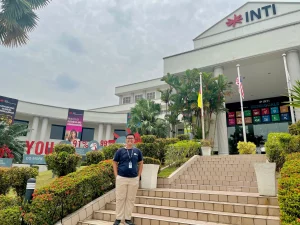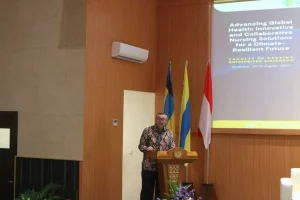UNAIR NEWS – The Ministry of Religious Affairs of the Republic of Indonesia has proposed instituting school holidays during Ramadan as part of its new-year agenda. The initiative aims to help students understand the essence of the holy month while fostering greater involvement from families and communities in the educational process. Addressing this proposal, Professor Dr. Tuti Budirahayu, Dra, M.Si, a distinguished professor of Education Sociology at Universitas Airlangga (UNAIR), shared her perspective.
Prof. Budirahayu voiced her support for the initiative, highlighting its potential benefits. “From a character development perspective, this policy allows children to engage in worship peacefully, whether at home or in the mosque. It offers invaluable lessons for students, particularly in fostering their spiritual growth. Additionally, it strengthens family bonds, deepening the connection between children and their parents,” she explained.
Policy implications
The proposed policy would have implications for both education and academics. Prof. Budirahayu noted that the Ramadan break could provide a meaningful opportunity to instill stronger social and moral values in students.

“If utilized properly, this holiday could help reduce negative behaviors such as bullying and violence among students,” she said, referencing the potential for positive behavioral change.
However, Prof. Budirahayu also acknowledged potential downsides, such as the disruption of academic targets. She suggested mitigating these effects by extending learning hours before or after the holiday to maintain academic continuity.
“Alternatively, regular lessons during Ramadan could be replaced with assignments that allow students to work from home on a more flexible schedule suited to their circumstances,” she added.
Alternative approaches
Prof. Budirahayu highlighted additional challenges the policy might present, including the need to meet curriculum goals and accommodate non-Muslim students or non-religious schools during the holiday period.
“These issues can be addressed by implementing online learning models. However, the workload should be manageable and should not interfere with students’ worship activities. Schools with non-religious curricula can either adopt the Ramadan holiday schedule or create their own tailored academic calendars,” she explained.
She further emphasized the importance of fostering collaboration between educators and parents to ensure that students’ academic progress remains steady after the extended holiday.
“Teachers and parents must work closely to monitor and evaluate students’ learning progress effectively throughout Ramadan. Lessons from the implementation of online learning during the COVID-19 pandemic can serve as a valuable reference. Therefore, adopting a remote learning system could be a relevant and practical mechanism,” she concluded.
Author: Nadia Azahrah Putri
Editor: Yulia Rohmawati









